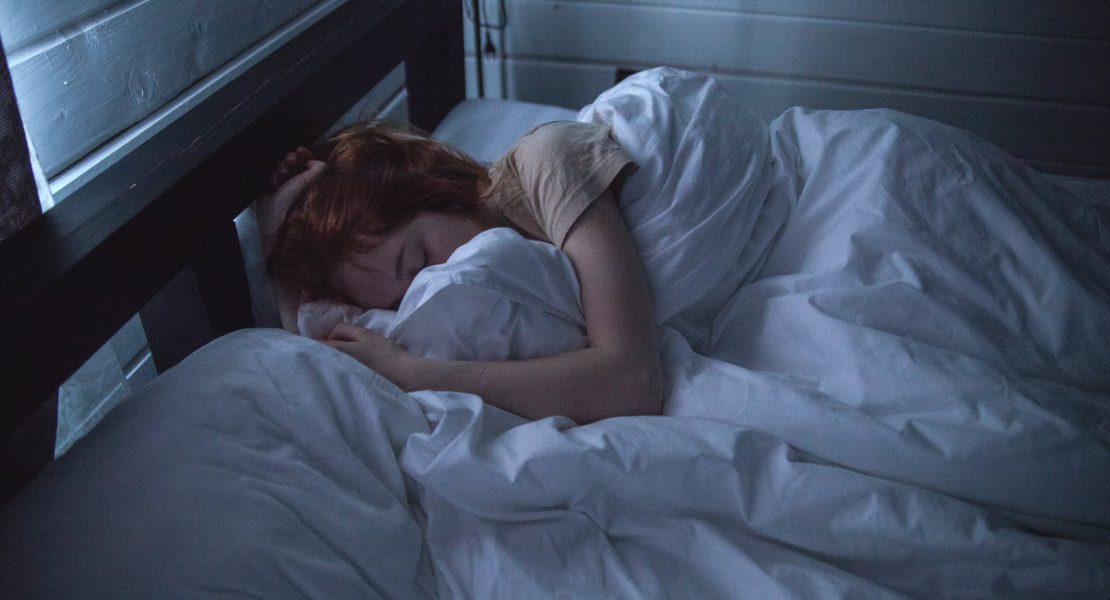
Sleep is one of the few basic needs and it is recommended that adults get between 7-9 hours a night. We spend about one third of our lives either sleeping or attempting to sleep and it plays an important role in our general health and wellbeing.
For many of us, increased stress and stimulation, from either smartphones, tablets or televisions, has resulted in poorer sleep patterns which can radically diminish our overall quality of life.
If you’re someone who struggles getting sleep when experiencing heightened stress, here are our most effective hints that can alleviate sleeplessness.
1. Stick to a consistent sleep schedule.

Getting consistent sleep is perhaps the most important advice for trying to when stressed. The best way to get consistent sleep is by trying to wake up and go to bed at the same times every day. Some tips that can help be more consistent include setting an alarm every morning, selecting a bedtime that’s convenient for you and by turning off all distractions at night that could encourage you to stay up later. By doing this, your circadian rhythm improves, ensuring more restorative and deeper sleeps. On top of this, sticking to the same schedule can build the body’s immune system and reduce the risk of cardiovascular disease, high blood pressure, stroke and diabetes.
2. Have a well balanced and nutritious diet.

Ensuring that you stick to a balanced healthy diet is shown to improve your overall quality of sleep and reduce general stress. Diets that are high in sugar, saturated fats and carbs, whilst low in nutrients and fibre can radically shorten your sleep time and result in waking up in the middle of the night. In contrast, diets which have high consumption of fruits and vegetables, low amounts of sugar and more fibre can help have longer, and more restorative sleep. If you’re looking for some quick and healthy meals, check out the link here.
3. Drink herbal teas 2 hours before bed.

Tea is not only a delicious beverage, it has many health benefits that vary across the hundreds of types of tea. Although many teas contain caffeine, there are certain kinds of tea that are proven to have sleep promoting properties and can be highly beneficial to have 1-2 hours before bed. These teas include chamomile, lavender, lemon balm, passionflower, and peppermint teas. Many tea brands also have their own sleep specific teas that can be very useful too. A few places where you can buy these teas are T2 and Tea Drop.
4. Limit screen time in the few hours before bed.

Avoiding screens a few hours before bed can do wonders for your overall quality of sleep. The blue light emitted from televisions and handheld devices has been proven to decrease the amount of melatonin created during the nighttime. High levels of stimulation from the media consumption at night can also create more alertness, resulting in further sleeplessness. If you want to reduce screen time before bed, engaging in mindfulness activities such as reading and drawing can be a great alternative and ensure higher quality sleep.
5. Try to get adequate sunlight/outdoor exposure throughout the day.

Sunlight exposure plays a critical role in promoting healthy sleep patterns, especially during stressful times. It does this producing both serotonin and melanin, with higher levels of both aiding the creation of melatonin at night. Melatonin is the hormone that helps induce sleep and encourages consistency in a person’s circadian rhythm, with deficiencies causing significantly interrupt sleep. Sunlight is also an important source of vitamin D, which promotes healthy sleeping and reduces stress. If you’re finding that you are still experiencing sleeping issues after a week of relative prolonged sun exposure, you may need to visit your GP for vitamin D or melatonin supplements.
Have any other useful sleep tips? Let us know in the comments!






















